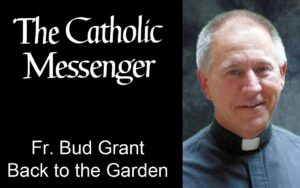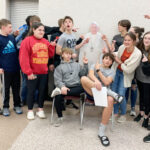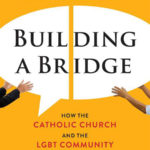By Fr. Bud Grant
The last 115 years constitute “the warmest in the history of modern civilization” according to the Climate Science Special Report (CSSR) issued Nov. 3. Moreover, “human activities … are the dominant cause of the observed warming…”
 These are remarkable (terrifying) statements, despite not being askew of what we have been hearing for decades. Don’t take my word for it: read for yourself at http://tinyurl.com/yat55wmx.
These are remarkable (terrifying) statements, despite not being askew of what we have been hearing for decades. Don’t take my word for it: read for yourself at http://tinyurl.com/yat55wmx.
The CSSR, mandated by the 1990 Global Change Research Act of Congress under President George H.W. Bush, has always been controversial. In fact, there have been only four (in 2000, 2009, 2014 and now), though the law requires it every four years.
This report was issued under a president who has called climate change a “Chinese hoax” and who has, in the past 10 months, withdrawn from the “Paris Accord,” eliminated rules governing CO2 emissions, deleted all EPA references to climate change, opened the largest ever auction of oil and gas leases, withdrawn the Clean Power Plan, revoked federal flood-risk standards, reduced the size and protection of national parks and endangered species, nominated skeptics for positions from the Department of the Interior to the head of NASA, and cut environmental science studies by 31 percent.
And yet 56 percent of Republicans, 69 percent of Independents and 79 percent of Democrats believe there is “solid evidence” of climate change. This is seismic. In 2015 it was posited that Americans’ attitudes had been changed by the visit of Pope Francis to the U.S. Another study, in March of this year, confirms that claim: “a greater percentage of those exposed to the pope’s position viewed climate change as a moral issue.” More interestingly, “the pope primarily exerted a stronger effect on the moral beliefs of Republicans.” (Climate Change 3.17.Vol. 141, 2) Nor was this impact detected only among Catholics.
This evidence suggests that the Holy Father’s moral authority, combined (of course) with hard scientific data, is dang near the only power on earth that will penetrate the hardened walls of ideological division that are otherwise reaching a crisis point in our democracy. We can only speculate as to why Pope Francis’ predecessors had less influence moving public opinion on this or other grave moral issues of our time. He is no more humble than St. John Paul II and no more intellectually acute than retired Pope Benedict XVI. It could be, in part, simply a question of timing.
So many of us are so afraid (and for valid reasons) that we are open to receive the grace of Christian hope. Our Holy Father more than satisfies that hunger. We are responding to the faith-filled intuition that fear breeds anti-Gospel defensiveness, suspicion and wall building, while hope widens our embrace.
Advent is the season wherein “the weary world rejoices” in the advent of the Messiah: the ultimate integration of Creation with the Creator in the Incarnation of the Son. St. Augustine says that Christian hope is the same thing as “assurance.” We know that eternity and temporality, infinity and space, are not in opposition, not sequential, even, but simultaneous realities between which we may move with the grace of those born of both.
We are well poised, if somewhat tardily, for the next seismic impact of grace, which is this: while most Americans think climate change is real, anthropogenic, and advanced, most (60 percent) think it won’t impact them personally, which translates into a low sense of urgency that something should be done.
Nothing is more contrary to our faith than to be concerned only about those things which impact “me.” The individualization of Christianity (going back as far as Kant and Luther) betrays an abrogation of the most essential commandment Christ has given us, which is to love God and our neighbors (Mk. 12: 30, Mt. 22:37, Lk. 10:27). What don’t we get (after all these epochs) about that simplest, most sublime, command?
(Father Bud Grant is a professor of theology at St. Ambrose University in Davenport.)











